Related Research Articles
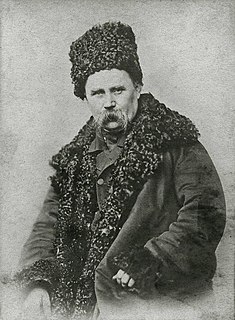
Taras Hryhorovych Shevchenko, also known as Kobzar Taras, or simply Kobzar, was a Ukrainian poet, writer, artist, public and political figure, folklorist and ethnographer. His literary heritage is regarded to be the foundation of modern Ukrainian literature and, to a large extent, the modern Ukrainian language, though this is different from the language of his poems. He also wrote some works in Russian. Shevchenko is also known for his many masterpieces as a painter and an illustrator.
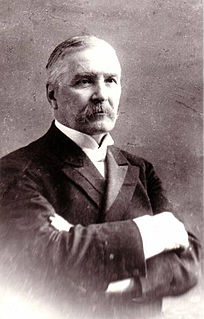
Mykola Vitaliyovych Lysenko was a Ukrainian composer, pianist, conductor and ethnomusicologist of the late Romantic period. In his time he was the central figure of Ukrainian music, with an oeuvre that includes operas, art songs, choral works, orchestral and chamber pieces, and a wide variety of solo piano music. He is often credited with founding a national music tradition during the Ukrainian national revival, in the vein of contemporaries such as Grieg in Norway, The Five in Russia as well as Smetana and Dvořák in what is now the Czech Republic. By studying and drawing from Ukrainian folk music, promoting the use of the Ukrainian language, and separating himself from Russian culture, his compositions form what many consider the quintessential essence of Ukrainian music. This is demonstrated best in his epic opera Taras Bulba from the novella of the same name by Nikolai Gogol, in which the grandeur, complexity and Ukrainian-language libretto prevented its staging during Lysenko's lifetime.

Kyiv University or Shevchenko University or officially the Taras Shevchenko National University of Kyiv, colloquially known as KNU, is located in Kyiv, the capital of Ukraine. The university is universally recognized as the most prestigious university of Ukraine, being the largest national higher education institution. KNU is ranked within top 650 universities in the world. It is the third oldest university in Ukraine after the University of Lviv and University of Kharkiv. Currently, its structure consists of fifteen faculties and five institutes. It was founded in 1834 by the Russian Tsar Nikolai I as the Kyiv Imperial University of Saint Volodymyr, and since then it has changed its name several times. During the Soviet Union era, Kiev State University was one of the top-three universities in the USSR, along with Moscow State University and Leningrad State University. It is ranked as the best university in Ukraine in many rankings. Throughout history, the university has produced many famous alumni including Mykola Lysenko, Nikolay Bunge, Mykhailo Drahomanov, Mykhailo Hrushevskyi, Nikolai Berdyaev, Mikhail Bulgakov, Ivan Schmalhausen, Theodosius Dobzhansky, Viacheslav Chornovil, Leonid Kravchuk, and many others. Taras Shevchenko himself, banned from educational activities for political reasons, worked for the Kyiv University as a field researcher.
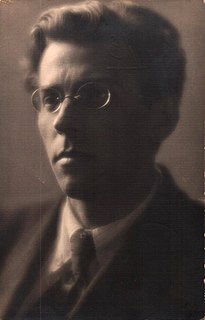
Pavlo Hryhorovych Tychyna was a major Ukrainian poet, translator, publicist, public activist, academician, and statesman. He composed the lyrics to the Anthem of the Ukrainian Soviet Socialist Republic.
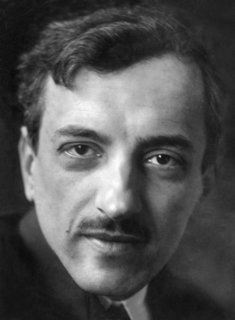
Borys Mykolayovych Lyatoshynsky ; also Boris Lyatoshinsky; January 3, 1895 – April 15, 1968) was a Ukrainian composer, conductor, and teacher. A leading member of the new generation of 20th century Ukrainian composers, he was awarded a number of accolades, including the honorary title of People's Artist of the Ukrainian SSR and two Stalin State Prizes.

Lina Vasylivna Kostenko is a Ukrainian poet, journalist, writer, publisher, and former Soviet dissident. A founder and leading representative of the Sixtiers poetry movement, Kostenko has been described as one of Ukraine's foremost poets and credited with reviving Ukrainian-language lyric poetry.
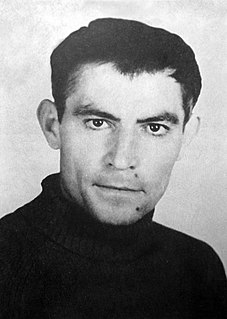
Vasyl Semenovych Stus was a Ukrainian poet, translator, literary critic, journalist, and an active member of the Ukrainian dissident movement. For his political convictions, his works were banned by the Soviet regime and he spent 13 years in detention until his death in Perm-36—then a Soviet forced labor camp for political prisoners, subsequently The Museum of the History of Political Repression—after having declared a hunger strike on September 4, 1985. On November 26, 2005, the Ukrainian president Viktor Yushchenko posthumously awarded him the highest national title: Hero of Ukraine. Stus is widely regarded as one of Ukraine's foremost poets.

Oleh Lysheha was a Ukrainian poet, playwright, translator and intellectual. Lysheha entered Lviv University in 1968, where during his last year, he was expelled for his participation in an "unofficial" literary circle, Lviv Bohema. As punishment, Lysheha was drafted into the Soviet army and internally exiled. During the period 1972-1988, he was banned from official publication, but in 1989 his first book Great Bridge was published. For "The Selected Poems of Oleh Lysheha," Lysheha and his co-translator James Brasfield from Penn State University, received the 2000 PEN Award for Poetry in Translation published by the Harvard Ukrainian Research Institute. Lysheha is the first Ukrainian poet to receive the PEN award.

Vasyl Andriiovych Symonenko was a Ukrainian poet, journalist, activist of dissident movement. He is considered one of the most important figures in Ukrainian literature of the early 1960s. In the opinion of the Museum of the Dissident Movement in Kyiv, the works and early death of Vasyl Symonenko had an enormous impact on the rise of the national democratic movement in Ukraine.

Mykola Danylovych Rudenko was a Ukrainian poet, writer, philosopher, Soviet dissident, human rights activist and World War II veteran. He was the founder of the Ukrainian Helsinki group, and was twice arrested for his dissident activities.
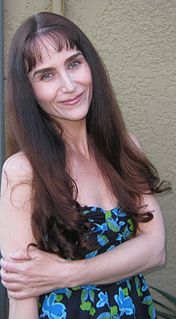
Svitlana Viktorivna Ischenko — poet, translator, stage actress, teacher, artist. She is a member of The Ukrainian Writers’ Association (1997) and The National Writers' Union of Ukraine (1998).

Valeriy Shevchuk is a Ukrainian writer.

Ihor Kaczurowskyj was a Ukrainian poet, translator, novelist and short story writer, literary scholar, university lecturer, journalist.

Ihor Pavlyuk is a Ukrainian writer, translator and research worker. Named People's Poet of Ukraine in 2020.

Dmytro Dmytrovych Kremin was a Ukrainian poet, journalist, translator, and scholar. Kremin was one of the awardees of The Taras Shevchenko National Literary Prize in 1999, for the book of poems called Pectoral.

Lyuba Yakimchuk, also known as Lyubov Yakymchuk, is a Ukrainian poet, playwright, and screenwriter, living in Kyiv. Her work includes Apricots of Donbas (2015).
Natalia Belchenko, also spelled Beltchenko is a Ukrainian poet and translator.
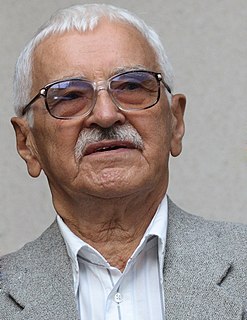
Yevhen Oleksandrovych Sverstiuk was a Ukrainian literary critic, essayist, poet, think tank, philosopher, participant of the sixtiers movement, and political prisoner of the Soviet regime. Sverstiuk studied the work of Nikolai Gogol, Taras Shevchenko, and Ivan Franko. He was the founder and, since 1989 a permanent editor of the Orthodox newspaper Nasha Vira, president of the Ukrainian PEN Club. Doctor of philosophy. Author of one of the most important texts of Ukrainian self-publishing About the process of Pogruzhalskyi, head of Ukrainian Association of Independent Creative Intelligentsia.
References
- 1 2 "Lost Horse Press - an Independent Literary Publisher". www.losthorsepress.org. Retrieved 2022-04-14.
- ↑ "Mykola Vorobyov. Hora i kvitka". UMKA. Retrieved 2022-04-14.
- ↑ "Poetry reading by the renowned Kyiv-based poet Mykola Vorobiov – Shevchenko Scientific Society" . Retrieved 2022-04-14.
- ↑ "Mountain and Flower: The Selected Poems of Mykola Vorobiov". Harvard Ukrainian Studies. Retrieved 2022-04-14.